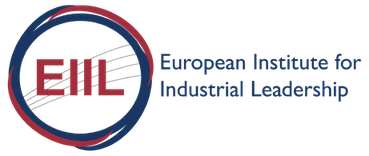Making a case for increased diversity and inclusion was not the prime purpose of the recent EIIL masterclass ‘Multi-cultural negotiating and influencing’ but it was certainly a welcome by-product.
The EIIL’s Leaders of Industry study in 2003 identified ‘the ability to appreciate cultural differences and to effectively negotiate and influence in these’ as one of the core skills required by next generation leaders. Run every year since then, and as an EIIL Masterclass since 2013, this workshop aims to develop a broader appreciation of several different cultures and of how successful seniors plan and prepare themselves to interact effectively in each.
Drawing on his 30 years’ experience leading negotiations with Oil & Gas majors on every continent, Content Coach Mark Jenkins helped to clarify, and develop interview output from the masterclass interviewees, eliciting the usual excellent feedback from participants:
‘The Cultural Posture Framework we learned will be very useful for multi-office project execution’ said Andreas Rathmann, Senior Electrical Egnineer at CB&I in London. ‘I can see this as being very useful for other engineers looking to see the company beyond their technical silos.’
Christian Schlag, Project Manager at Bayer A.G. said ‘I found the most useful aspect of the workshop to be the preparation for each of the interviews. As a result of this I’m planning to spend more time myself in my own negotiation preparations. I can see myself using the skills I’ve learned on this workshop on a daily basis’.
But perhaps the biggest surprise was how effectively juniors and seniors on the workshop overcame the cultural differences between their own two generations. ‘This is certainly one of the best workshop output guides of the year’ said Steve Price, Process Coach for the workshop, and himself experienced in multi-cultural negotiation from his days building chemical plants for ICI in the Far East.
‘We’ve been working hard on our workshops throughout the year at reviewing and encouraging behaviours amongst the seniors (30-40 year olds) to foster greater inclusiveness and engagement of the juniors present (20 – 25 year olds)’ said Price. This was the first workshop in which the Juniors influenced Seniors to really embrace the collaborative working practices more common in their own ‘Junior’ culture. The ‘retention-ready’ behaviours of the Seniors, their openness to learn, was a major factor in this. We got both a great workshop output, and a really well-integrated team.’
Responding to Members’ needs for support with their talent retention policies, EIIL workshops throughout 2016 will continue to foster inter-generational understanding and to develop behaviors to encourage this.

